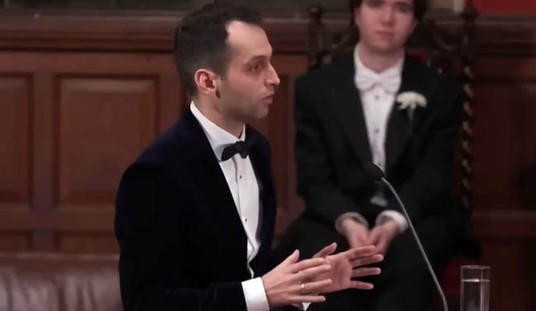“Sunday Reflection” is a regular feature, looking at the specific readings used in today’s Mass in Catholic parishes around the world. The reflection represents only my own point of view, intended to help prepare myself for the Lord’s day and perhaps spark a meaningful discussion. Previous Sunday Reflections from the main page can be found here. For previous Green Room entries, click here.
This morning’s Gospel reading is Matthew 11:25–30:
At that time Jesus exclaimed:
“I give praise to you, Father, Lord of heaven and earth, for although you have hidden these things from the wise and the learned you have revealed them to little ones. Yes, Father, such has been your gracious will. All things have been handed over to me by my Father. No one knows the Son except the Father, and no one knows the Father except the Son and anyone to whom the Son wishes to reveal him.
“Come to me, all you who labor and are burdened, and I will give you rest. Take my yoke upon you and learn from me, for I am meek and humble of heart; and you will find rest for yourselves. For my yoke is easy, and my burden light.”
“For I am meek and humble of heart.” Those words may strike us as puzzling, for wow often do we exalt the Lord? We praise Him for His mighty works, for the breadth of creation. We acknowledge His infinite power and His infinite wisdom. Yet here we have, and also in today’s first reading in Zechariah, the statement that our Savior, the Son of God, is meek and will come to us “riding on an ass, on a colt, the foal of an ass,” a picture of humility.
How do we resolve the apparent contradiction? First, we must understand that there is no contradiction, and that the confusion is caused by human nature rather than reality within God’s love. We are used to human projections of power and knowledge, where both are used to gain advantage and dominate others. The Pharisees and Sadducees of that time used their superior knowledge of Scripture and law to dominate the Israelites in Jesus’ time, for instance. We see numerous examples from the Gospels of the ruling classes attempting to derail Jesus’ ministry, especially in defense of the economy and power structure of the Temple.
They are hardly unique, though — we see plenty of other examples in every era and time, and not just from the ruling classes but within ourselves, as well. We laugh and point with scorn at those who attempt to dominate others with the “Do you know who I am?” retort when challenged, and others who point to degrees or awards as ways to put themselves above reproach. These impulses come naturally to us, because our fallen human nature finds power and domination attractive. We acquire these outward signs of knowledge and power in order to present ourselves shortcuts to authority and avoidance of engagement. It gives us a chance to dominate, which is the opposite of humility and charity.
There is nothing wrong with knowledge, of course, or wisdom. Those gifts can be put to great use, but in ways that benefit others and contribute to the common good rather than serve selfish desires. It’s the inordinate desire for power, fame, money, and/or honors that end up being sinful and move us away from God, and away from our own true identities.
God Himself does not seek to dominate, as the Gospel and the first reading indicate. God will rule in His kingdom, but will rule through love and the free-will choice of those who become His sons and daughters. C. S. Lewis offered this clear explanation in his indispensable book The Screwtape Letters:
You must have often wondered why the Enemy does not make more use of His power to be sensibly present to human souls in any degree He chooses and at any moment. But you now see that the Irresistible and the Indisputable are the two weapons which the very nature of His scheme forbids Him to use. Merely to override a human will (as His felt presence in any but the faintest and most mitigated degree would certainly do) would be for Him useless. He cannot ravish. He can only woo. For His ignoble idea is to eat the cake and have it; the creatures are to be one with Him, but yet themselves; merely to cancel them, or assimilate them, will not serve.
Could God dominate us and force us into abject slavery? Sure, He could if He so chose. His will could crush us into unchosen obedience, into a fear-filled existence that only promised more of the same throughout eternity. This, however, is just the opposite of love and charity. In fact, this is exactly what sin does to us. It insinuates itself through our fallen human nature and our need to become our own gods, and feeds us on our own lusts — for power, sex, vainglory, vanity, and so on. We become enslaved to sin while believing ourselves to have been liberated by it. We need more and more of it in order to feed the emptiness that it expands, until we finally become so lost to it that we no longer recognize ourselves.
Do you know who I am eventually becomes less a slogan of domination, and more a plea for help.
God does know who we are, and wants us to be ourselves — the best part of ourselves, but still distinct, unique, and free within His love. This is why Jesus emphasizes the point here that choosing the path of righteousness may look more difficult and more like servitude, but it is a true liberation. Jesus tells the disciples and “all you who labor and are burdened” that “my yoke is easy, and my burden light,” and that “you will find rest for yourselves.” We can do this by taking His yoke upon us and setting down the yoke of sin. Furthermore, this is possible because Jesus is “meek and humble of heart.” That is not just a coincidental point, but the foundation for the lighter yoke, the truly refreshing rest.
The difficulty in choosing the yoke of Jesus is recognizing that it is a choice between two yokes, and not a choice between one yoke and the concept of self-liberation. Too often, we fall back into our sinful self-deception that we are the only God we will ever need, and that leads us back to the inevitable slavery of sin and the perpetual emptiness that first makes Do you know who I am? a brag and then into a wail of despair.
Even in those times, though, we can rest assured that God knows who we are, and is ready for us to set down the yoke of sin and self-adoration. All we need to do is pick up the yoke that Jesus gives us of charity and faith. When we do, we will finally recognize the burden of sin, and find rest in setting it down. And in doing so, we will finally find ourselves, rather than the illusory identities we have built up through our refusal to recognize the one true authority — and we won’t ever have the need to say Do you know who I am to anyone else, least of all to ourselves.
Today’s image is from a mid-3rd century fresco in the Catacomb of Callixtus in Rome, one of the earliest images of Jesus as the Good Shepherd yet discovered.









Join the conversation as a VIP Member